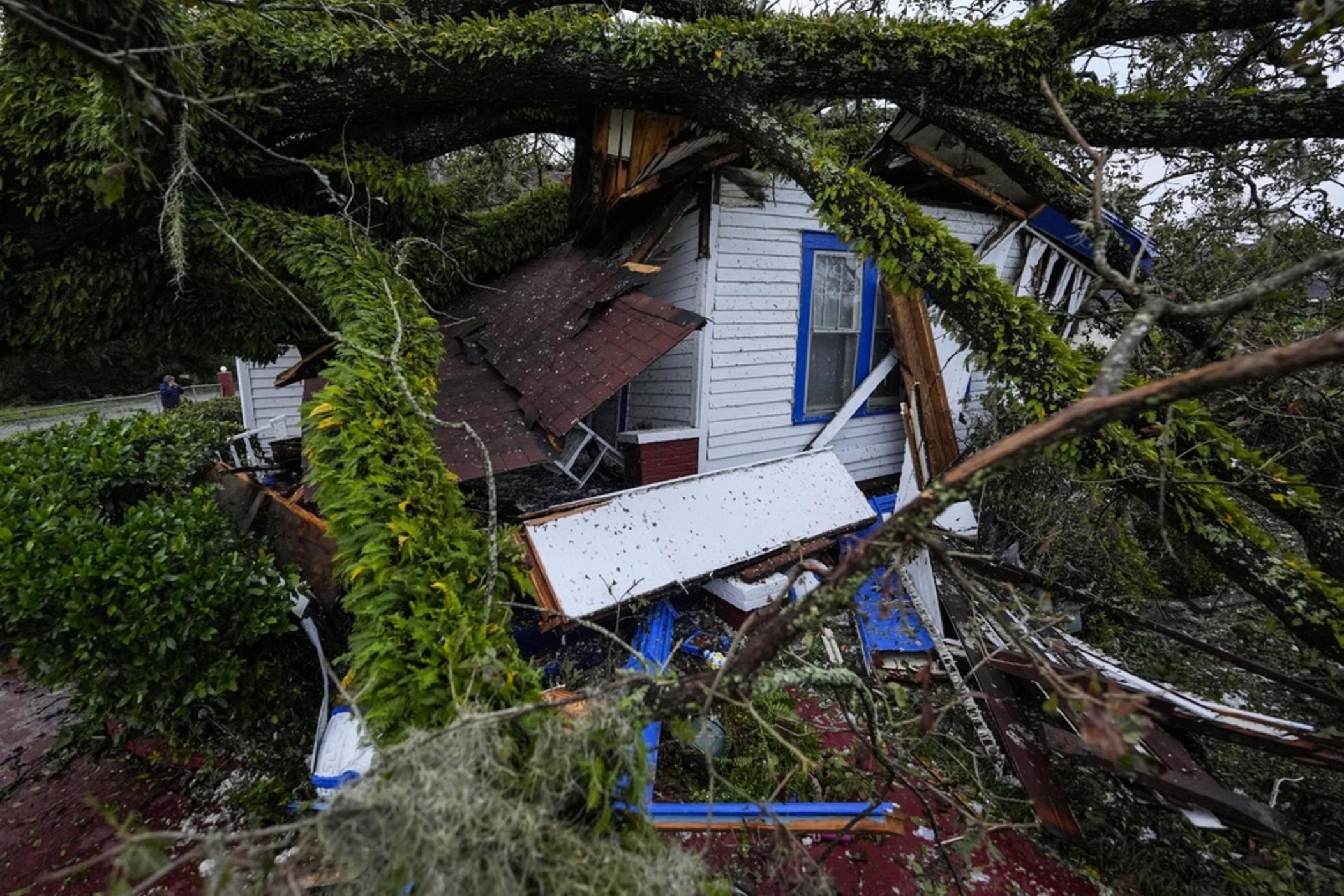Section Branding
Header Content
'Severe Weather Preparedness Week' in Georgia is back. Here's what you need to know
Primary Content
Do you know where you would take shelter if a tornado was headed your way or how to protect important documents from flood waters?
The National Weather Service and the Georgia Emergency Management and Homeland Security Agency (GEMA) are asking Georgians these questions as part of Severe Weather Preparedness Week.
Every day between Feb. 3 and Feb. 7, the two agencies focus on a specific step you can take to prepare for tornadoes, severe thunderstorms and more:
- Monday, Feb. 3, was Family Preparedness/NOAA Weather Radio Day: Purchase a life-saving NOAA Weather Radio and choose an out-of-state friend as a “check-in” contact to call if your family gets separated.
- Tuesday focused on thunderstorm safety: Learn the difference between a thunderstorm watch and a thunderstorm warning.
- Wednesday's topic is tornado safety: Determine in advance where you will take shelter in case of a tornado warning. Learn how to do a drill here.
- Thursday teaches on lightning safety: Learn the 30/30 rule. If after seeing lightning, you cannot count to 30 before hearing thunder, go indoors. Stay indoors for 30 minutes after hearing the last clap of thunder.
- Friday wraps the week with flash flooding and flood Safety: Copy important documents, seal them in a watertight container and add them to your Ready kit.
"We're wanting people to be prepared for multiple types of severe weather," GEMA’s Lisa Rodriguez-Presley said in 2024. "The things that we experienced in Georgia most frequently, tornadoes, severe thunderstorms and the occasional hurricane as well. And if you're prepared for one, there's a really good chance that you're going to be prepared for almost all of them. So we want for people to take those proactive steps and, prepare before there's an emergency."
That prep was put to the test in 2024.
“This past year alone, Georgia has experienced two major hurricanes, winter storms, and significant flooding, reminding us just how unpredictable, diverse and powerful Mother Nature can be,” GEMA/HS director Chris Stallings said. “Severe Weather Preparedness Week is a critical time to reflect on these events and ensure we’re ready for the next challenge. By learning safety tips, reviewing emergency plans, and staying prepared, we can protect our families, homes, and communities from the impact of natural disasters. Preparation today can make all the difference tomorrow.”
Know the difference between a watch and a warning
Rodriguez-Presley explains that a storm or tornado watch means "there's the potential [for a tornado or thunderstorm]; 'warning' means there actually is one and it's a threat to you."
A weather radio or notifications on phone apps can help notify you if there's severe weather. Many neighborhoods have tornado sirens, so listen out for those as well.
What about mobile homes?
"A lot of people in Georgia that may live in mobile homes or other structures that would not be safe during a tornado," Rodriguez-Presley said. "So planning in advance where you are going to go is going to help you to be safe. So really, it's just getting people to think about beforehand, about where they're going to go and what they're going to do in the event of one of these emergencies that we, you know, typically see."
Keeping your documents safe
"So by making sure that your important documents, you know, the things that you absolutely want to have — your birth certificates, Social Security cards, passports, you know, deed to your house, those kind of things [are safe]," Rodriguez-Presley said. "Make sure that you put those in a sealable plastic bag, you know, like a Ziploc bag, and have them in a plastic container. Because if your home floods, those documents will survive if you didn't have the chance to take them with you when you leave before flooding happens."
Listen to authorities
"If there's one thing that I could say, you know, that it's just critical for people to do pay attention to what your local officials are saying," she said, "because it's so much better to be safe than sorry."
Resources
The National Weather Service provides resources for preparing your family and home for severe weather. Follow these links to learn more:
Go to gema.georgia.gov/plan-prepare/ready-georgia for information on developing a custom emergency plan and Ready kit.



